#Jewish Institute for Liberal Values
Text
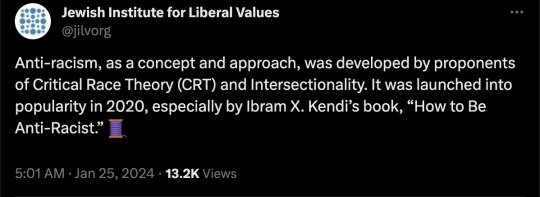
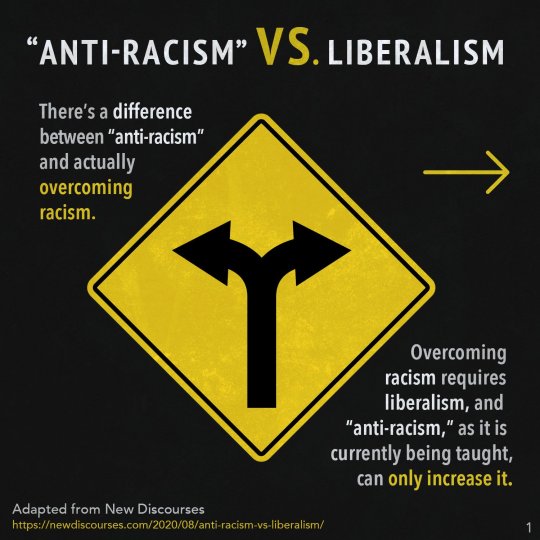
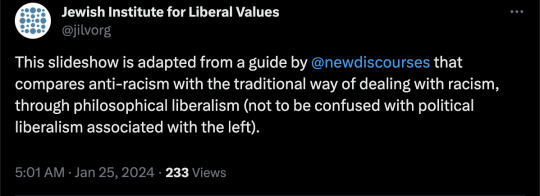
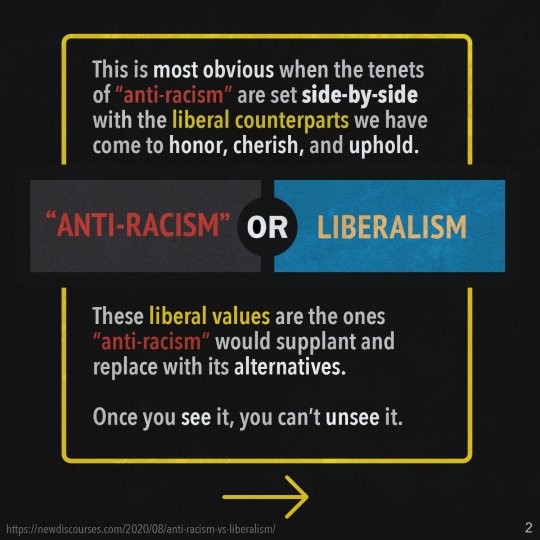
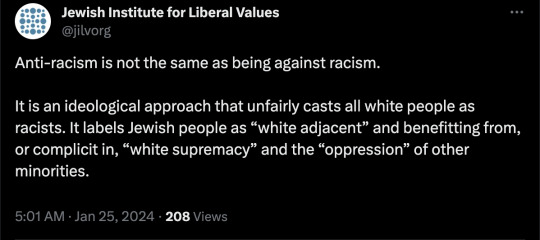
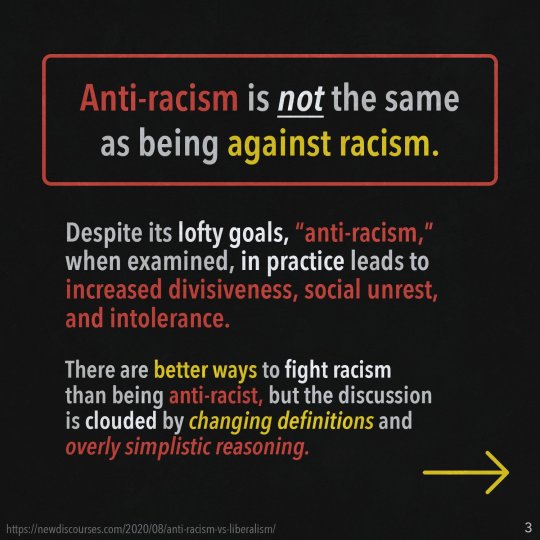
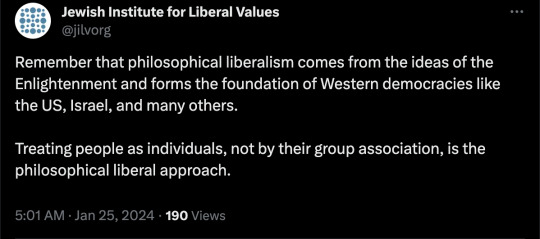
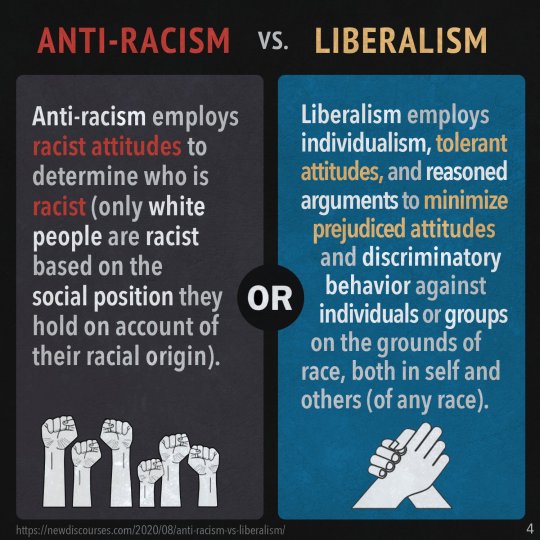

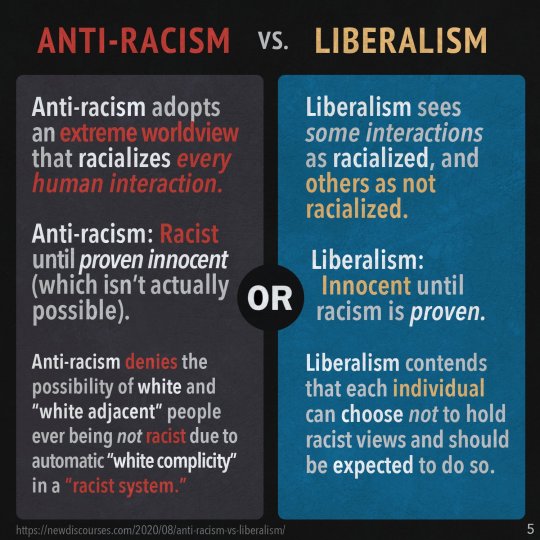
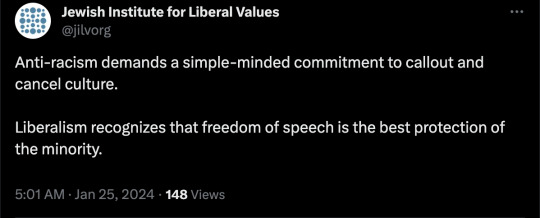
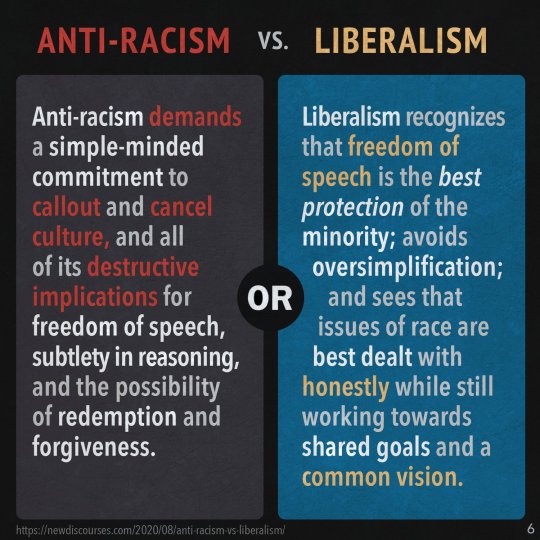
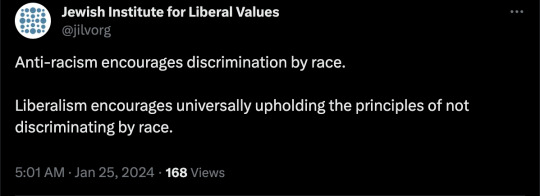
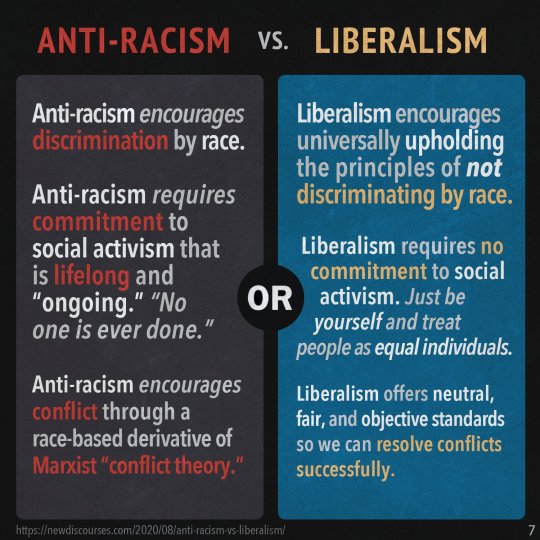
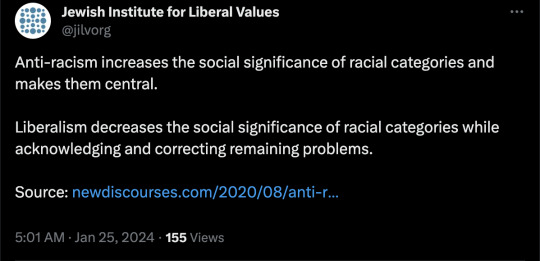
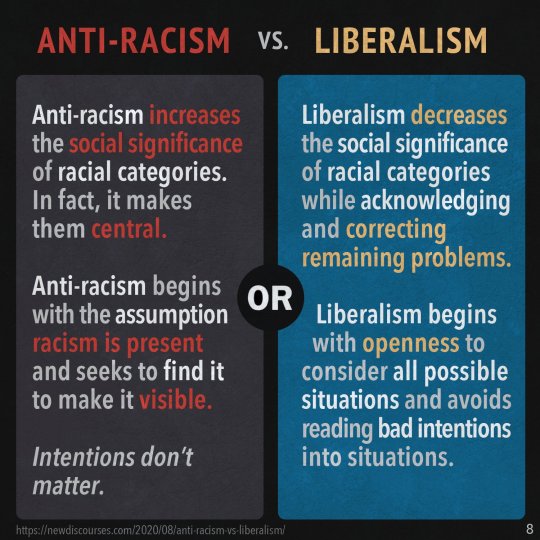
#Jewish Institute for Liberal Values#liberalism#liberal values#liberal ethics#antiracism#antiracism as religion#racial discrimination#intentions don't matter#critical race theory#individualism#collectivism
8 notes
·
View notes
Note
So what’s the modern interpretation of the laws about keeping slaves? I’ve heard that said laws where a lot more kind to slaves then the surrounding nations but, like, it’s still slavery?
Hi anon,
With Pesach coming up, I'm sure that this question is on a lot of people's minds. It's a good question and many rabbanim throughout history have attempted to tackle it. Especially today, with slavery being seen as a moral anathema in most societies (obviously this despite the fact that unfortunately slavery is still a very real human rights crisis all over the world), addressing the parts of the Torah that on the surface seem to condone it becomes a moral imperative.
It's worth noting that the Jewish world overall condemns slavery. In my research for this question, I came across zero modern sources arguing that slavery is totally fine. I'm sure that if you dug deep enough there's some fringe wacko somewhere arguing this, but every group has its batshit fringe.
Here are some sources across the political and religious observance spectrum that explain it better than I could:
Chabad (this article is written by Rabbi Tzvi Freeman, a wonderful rabbi whose words I have learned deeply over the years. He is one of my favorite rabbis despite not seeing eye to eye with a lot of the Chabad movement)
Conservative (to be clear: this is my movement; it's not actually politically conservative in most shuls, just poorly named. We desperately need to bully them into calling themselves Masorti Olami like the rest of the world. It's [essentially] a liberal traditional egalitarian movement.)
Conservative pt. 2 (different rabbi's take)
Reform (note that this is from the Haberman Institute, which was founded by a Reform rabbi. Link is to a YouTube recording of a recent lecture on the topic.)
Chareidi (this rabbi is an official rabbi of the Western Wall in Israel, so in a word, very frum)
Modern Orthodox
I want to highlight this last one, because it is written by the Rosh Yeshiva of Yeshivat Chovevei, which is a progressive Modern Orthodox rabbinical school. They work very hard to read Torah through an authentically Orthodox lens while also maintaining deeply humanist values. As someone who walks a similar (if not identical) balancing act, this particular drash (sermon) spoke very deeply to me, and so I'm reposting it in its entirety**
[Edit: tumblr.hell seems real intent on not letting me do this in my original answer, so I will repost it in the reblogs. Please reblog that version if you're going to. Thanks!]
Something you will probably notice as you work your way through these sources, you'll note that there are substantially more traditional leaning responses. This is because of a major divide in how the different movements view Torah, especially as it pertains to changing ethics over time and modernity. I'm oversimplifying for space, but the differences are as follows:
The liberal movements (Reform, Renewal, Reconstructionist, etc.) view halacha as non-binding and the Torah as a human document that is, nevertheless, a sacred document. I've seen it described as the spiritual diary of our people throughout history. Others view it as divinely inspired, but still essentially and indelibly human.
The Orthodox and other traditional movements view halacha as binding and Torah as the direct word of G-d given to the Jewish people through Moshe Rabbeinu (Moses) on Mt. Sinai. (Or, at a minimum, as a divinely inspired text written and compiled by people that still represents the word of G-d. This latter view is mostly limited to the Conservative and Modern Orthodox movements.)
Because of these differences, the liberal movements are able to address most of these problematic passages by situating them in their proper historical context. It is only the Orthodox and traditional movements that must fully reckon with the texts as they are, and seek to understand how they speak to us in a contemporary context.
As for me? I'm part of a narrow band of traditional egalitarian progressive Jews that really ride that line between viewing halacha as binding and the Torah as divinely given, despite recognizing the human component of its authorship - more a partnership in its creation than either fully human invention or divine fiat. That said, I am personally less interested in who wrote it literally speaking and much more interested in the question of: How can we read Torah using the divinely given process of traditional Torah scholarship while applying deeply humanist values?
Yeshivat Chovevei does a really excellent job of approaching Torah scholarship this way, as does Hadar. Therefore, I'm not surprised that this article captures something I have struggled to articulate: an authentically orthodox argument for change.
52 notes
·
View notes
Text
by Gary Wexler
I knew this guy was trouble.
“And now, Gary Wexler,” he sat down, “let me give you more direct answers.” He looked me straight in the eye. “Just like you were a Zionist campus activist, we will create, over the next years, Palestinian campus activists in America and all over the world. Bigger and better than any Zionist activists. Just like you spent your summers on the kibbutz, we will bring college students to spend their summers in refugee camps and work with our people. Just like you have been part of creating global pro-Israel organizations, we will create global pro-Palestinian organizations. Just like you today help create PR campaigns and events for Israel, so will we, but we will get more coverage than you ever have.”
He stood again this time, right over me. “You wonder how we will make this happen, how we will pay for this? Not with the money from your liberal Jewish organizations who are now funding us. But from the European Union, Arab and Muslim governments, wealthy Arab people and their organizations. Eventually, we will not take another dollar from the Jews.”
Then he approached real close. “What do you think of this?”
I took a breath. I remained professional. “Nothing. I’m here on behalf of the Ford Foundation collecting information for a planned marketing institute.”
He came even closer. “I am asking what does Gary Wexler think of what I just said. You, Gary Wexler.”
I repeated my answer.
He came even closer. “I ask again. What does Gary Wexler think of what I just said.”
Debra and I got up. I took my writing pad. “I feel that you are threatening me and we are leaving.”
The next morning I received a call from the program officer at the Ford Foundation. “Gary, we have a problem. We received a call from Ameer Makhoul and we understand you spewed out all sorts of Zionist propaganda and he felt very threatened by you.”
I told him it was a lie.
The program officer continued to press me as to what I had said. I related the conversation word for word. He repeated what Ameer Makhoul had said. I told him to call Debra London who was with me through the entire interview, and verify it with her. I also told him that they better check their funding to these Arab organizations, because Ameer Makhoul appeared to be controlling all of them with some very hateful behaviors.
He backed down.
Debra and I wrote up our recommendations for how they needed to build the marketing institute, including a recommendation for using the pro bono work, worth nearly 1 million shekels, that we had secured from the ad agencies. The program officer, a former academic focused on the nonprofit sector, couldn’t understand the value of businesses being involved and rejected it out of hand. A few weeks later, he told Debra and me that he had hired an NGO consulting team to finish the work. They would be giving several hours of consultation to each organization.
Several years later, I learned Ameer Makhoul had been arrested by the Israelis as a spy for Syria.
As the years went on, I began to see what Ameer Makhoul had laid out to me taking shape. The PR coverage was first: The Muhammad al-Durrah incident in Gaza, when a 12-year-old boy was shot to death on the second day of the Second Intifada, capturing global headlines. The Mavi Marmara, the Turkish Flotilla to Gaza that the Israelis stormed, killing several Palestinian activists, grabbing global headlines. I knew the Mavi Marmara was manufactured for the exposure it would gain.
Then the campuses: The creation of Apartheid Week worldwide. The growth of BDS. The student volunteers who began by the thousands to work in the Palestinian territories and its refugee camps. The shocking creation of anti-Zionist Jewish student groups.
52 notes
·
View notes
Text
If you believe in nothing, you will achieve nothing

Andrea Long Chu has a problem. She and her acolytes presently enjoy dictatorial control over every discourse that falls to the left of Fox News. They have convinced the world that speech is inherently violent and therefore a dedication to free speech is a precondition of fascism, if not outright genocide. Every decent person must agree with every thing they say, no matter how deranged or implausible. And so if a random person, for example, says that sexual dimorphism exists or that maybe cosmetic hysterectomies shouldn't be the first response to teenage mental health issues, that person has committed a severe act of violence and must be silenced.
But, oh no, it turns out that Chu and her cohort have found themselves outgunned on the topic of Israel-Palestine. The same left that has gleefully silenced all improper discussions of culture war issues for the last decade is now seeing their exact same tactics being used to silence any criticism of Israel's ongoing genocide. You can't even do something as anodyne as expressing support for a ceasefire without making a Jewish Yale student feel unsafe, and since speech is violence and feeling unsafe is even more of a genocide than an actual genocide I'm sorry, you were bad and unvalid and you must silenced. Them's the rules.
Chu attempts to reconcile these two, very sad realities in a recent piece for New York Magazine titled "The Free Speech Debate is a Trap." The essay is staggeringly moronic, even by Chu's august standards. I had to read it twice just to make sure I wasn't understanding it unfairly.
My readers seem like decent people. I find no joy in subjecting them to crap like this. But a deep dive into Chu's essay is necessary because it confirms the value of free speech on two fronts: 1) it shows why nothing short of a doctrinaire support of the first amendment can allow for the dissemination of opinions that dissent against the consensus of the permanent war state, and, 2) it demonstrates how an opposition to free speech leads to the proliferation of braindead analysis among supposed leftists.
Let us begin:
As is her wont, Chu writes in an obfuscatory style. She belabors simple points to weaken the reader's attention, so that when she sneaks in observations that are insane or otherwise very stupid we're less likely to notice.
She starts with a description of herself, another writer, and the whole staff of a poetry center being deplatformed for expressing their support of the Palestinian cause. This is, obviously, an injustice. But rather than taking the fascist's way out and deciding that maybe this free speech thing is actually worth pursuing, Chu explains that the incident actually strengthened her resolve against the free and protected exchange of ideas. Because, naturally, anything else would render her a hypocrite, and then she wouldn't be able to silence people for dissenting against gender bullshit:
Now it’s true: A left that supports the deplatforming of transphobes but opposes the deplatforming of anti-Zionists cannot justify itself by appealing to free speech — nor should it. For the liberal, freedom of speech is a deliberately empty principle. It allows a liberal institution to mediate peacefully between differing political views without any (apparent) reference to the content of those views — all while quietly promoting its own views under the banner of neutrality. The left can do better.
Now, here it's very important to note the degree to which the concept of transphobia has been expanded in recent years, thanks in no small part to the work of Chu and her allies in media and academe. The concept once meant something like "a hatred of trans and/or gender non-conforming people," which is bad. But now it's expanded to include things like recognizing that males and females have different athletic abilities, expressing concern with the thought of male sex offenders being housed in women's prisons, the refusal of female service workers to perform intimate procedures on natal males, or even simply using words like "male" and "female." This type of extreme narrative control simply could not persist in a discourse that wasn't very broken, or among people who did not regard the aggressive policing of speech as a paramount ideal. Like the rest of the identitarians who now control what passes for the American Left, Chu is very unabashedly pro-censorship.
Strip down the blandishments and you'll find her point is simple: free speech is bad, because it allows people to say things that may discredit her. Only instead of admitting to being discredited, she shall claim that speech itself in an act of violence, because after all if she's discredited that means violence has been inflicted upon her. Herself and other people who believe everything she believes should be anointed the gatekeepers of what does or does not constitute acceptable speech. Those who break from their dictates must be shunted from the public sphere and suffer professional consequences.
The type of nihilism endorsed by Chu is only advantageous to those whose beliefs benefit the empowered. And, at the end of the day, the people who run most every left-liberal institution (including the Democratic party) are resolutely in favor of Israel's genocide. Some of them take genuine pleasure in watching Palestinians die; others were taped fucking children on a sex island and cannot upset their blackmailers; and the bulk of them are mortified by the prospect of being labeled some kind of -ist or -phobe, as they know full well--thanks, again, to the efforts of Chu and her cohort--that they would not be able to proffer any defense against such accusations, regardless of how stupid they may be.
There is no way to reconcile this situation within the boundaries set by left identitiarisn. None. You can either support free speech as an abstract principle and allow unpopular and inconvenient speech to proliferate without punishment, or you can endorse a society where the acceptability of speech is determined by the desires of the warmongering sociopaths who run the world. It's one or the other. There are no other options.
I don't think anything I've written so far is especially complicated, or even controversial. These are the sort of observations I would have easily grasped in middle school. But, oh, here's where the obfuscation sets in, where Chu demonstrates her Pulitzer Prize-winning skill of making reactionary bullshit sound left-ish.
She starts with the well-worn trope of arguing that today's speech debates aren't really about free speech because the first amendment only applies to, like, the government:
It is worth remembering the vast majority of what we call free-speech issues have little basis in the First Amendment, which only forbids the abridgment of speech by the government, not private organizations like magazines, cultural centers, or Hollywood production companies. In most states, for instance, it is perfectly legal for employers to fire workers for speech, as a Westchester synagogue did last year after a teacher wrote an anti-Zionist blog post. So when advocates talk of freedom of speech, they are usually referring neither to the Constitution nor to statutory law but to a set of civil norms imagined to promote the health of the republic but which cannot be directly enforced by the government.
As a matter of simple fact, this is wrong. At least 32 of our 50 states require potential government employees to sign some sort of loyalty oath to Israel before they are allowed to receive state jobs. Compelled speech in support of zionist genocide--or, at least, the promise to never criticize said genocide--is enforced by the government. This is very literally a first amendment issue.
But, I will concede, the support of free speech largely redounds to a set of civil norms--the same as how we don't go around slashing other people's tires or puking in our neighbor's mailboxes not strictly because it's illegal to do so, but out of a sense of shared civic duty. Even if we can't articulate exactly why, we just sense that it would be bad to abandon our principles to a degree where we did or tolerated that sort of stuff.
These unspoken compacts are essential for the existence of any human society. And probably any animal society. And, shit, this probably applies to plants and bacteria, too. But the persistence of these compacts pisses off people like Chu because such compacts can, at times, present a threat to their capacity as the sovereign overseers of what is or is not acceptable. If judgments were deferred to science or empiricism or any other existing form of adjudicating correctness and decency, all of a sudden Chu wouldn't be a very smart intellectual, and we cannot have that.
Chu's... her... discussion of this? I hate to call it a "response," because an actual response would require some degree of honesty. But, uhh, the way she addresses this is to point out that free speech is actually, like, just a fiction, mannnnn...
While it is true that left-wing ideas have flourished in the humanities and, to a lesser extent, the social sciences — the result of the retreat of post-1968 social movements into the academy — the big private universities remain in the business of business, their endowments tied up in fossil fuels, big tech, and the prison-industrial complex and their purses fattened by wealthy donors who expect influence in return. After a letter was released at Harvard that blamed “all unfolding violence” on the Israeli government, the billionaire hedge-fund manager Bill Ackman, apparently speaking for his fellow CEOs, demanded that the school publish the rosters of the student groups who had signed the letter “so as to insure [sic] that none of us inadvertently hire any of their members.” The implicit understanding here was that elite private universities funnel their graduates into the nation’s highest positions of power and influence — including Congress itself — and that this pipeline must not be polluted by ideas that its previous beneficiaries find morally despicable or politically disadvantageous. The House hearing itself came chillingly close to a direct attempt by the federal government to materially intervene in the composition of the incipient professional class through, as more than one Republican suggested, the expulsion of student protesters.
Yes, indeed, speech has always been limited by the sovereign. Go back and read Locke and Bacon, see how much they hem and haw about their love of the Queen. Point to any of the hundreds or thousands of socialists who found themselves jailed in these United States for criticizing our involvement in the first World War. That's all true. But none of these facts negate the value and utility of free speech as an ideal.
If you have no principles, if your only goal is a naked quest for power, you will eventually encounter someone more empowered whose desires run counter to your own. Then you will fail, as you will have no recourse to do anything but fail. Without ideals, there is no path forward. Without decency, there is no hope. If the battle over the continuation of a genocide redounds to nothing less vulgar than two sides claiming righteousness by din of their own existence, the side that owns all the guns and media organizations is going to win.
But there's no room for such realizations within today's left, of whom Chu is a very sad but fitting embodiment. She is immensely successful not because of talent or intelligence or decency but because she manifests the perfect set of identity markers. If she were not physically hideous and/or a manipulative sociopath, she'd be a nobody. She thrives within our broken discourse only because her enablers fear her, and that fear is born of nothing more than pity. She cannot afford the existence of principles, as that would threaten her exalted status. And she is demanding that all the rest of us abandon every last sliver of hope to make sure she and friends remain in charge.
13 notes
·
View notes
Text
THIS DAY IN GAY HISTORY
based on: The White Crane Institute's 'Gay Wisdom', Gay Birthdays, Gay For Today, Famous GLBT, glbt-Gay Encylopedia, Today in Gay History, Wikipedia, and more … December 21

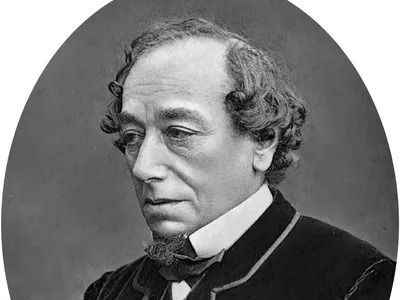
1804 – Benjamin Disraeli (d.1881) was a British Conservative politician, writer and aristocrat who twice served as Prime Minister. He played a central role in the creation of the modern Conservative Party, defining its policies and its broad outreach. Disraeli is remembered for his influential voice in world affairs, his political battles with the Liberal leader William Gladstone, and his one nation conservatism or "Tory democracy". He made the Conservatives the party most identified with the glory and power of the British Empire. He is, as of 2015, the only British Prime Minister of Jewish birth. Disraeli was born in London. His father left Judaism after a dispute at his synagogue; young Benjamin became an Anglican at age 12.
Together with his sister's fiancé, William Meredith, Disraeli travelled widely in southern Europe and beyond in 1830–31. The trip was financed partly by a novel, The Young Duke, written by Disraeli in 1829–30. The tour was cut short suddenly by Meredith's death from smallpox in Cairo in July 1831. Despite this tragedy, and the need for treatment for a sexually transmitted disease on his return, Disraeli felt enriched by his experiences. He became aware of values that seemed denied to his insular countrymen. The journey encouraged his self-consciousness, his moral relativism, and his interest in Eastern racial and religious attitudes.
After several unsuccessful attempts in which his opposition accused Disraeli of practicing "Eastern love", i.e. homosexuality, Disraeli entered the House of Commons in 1837. When the Conservatives gained power in 1841, Disraeli was given no office by the Prime Minister, Sir Robert Peel. In 1846, Peel split the party over his proposal to repeal the Corn Laws, which imposed a tariff on imported grain. Disraeli clashed with Peel in the Commons. The Conservatives who split from Peel had few who were adept in Parliament, and Disraeli became a major figure in the party, though many in it did not favor him. When Lord Derby, the party leader, thrice formed governments in the 1850s and 1860s, Disraeli served as Chancellor of the Exchequer and Leader of the House of Commons. He also forged a bitter rivalry with the Liberal Party’s William Gladstone.
Upon Derby's retirement in 1868, Disraeli became Prime Minister briefly before losing that year's election. He returned to opposition, before leading the party to a majority in the 1874 election. He maintained a close friendship with Queen Victoria, who in 1876 created him Earl of Beaconsfield. Disraeli's second term was dominated by the Eastern Question—the slow decay of the Ottoman Empire and the desire of other European powers, such as Russia, to gain at its expense. Disraeli arranged for the British to purchase a major interest in the Suez Canal Company (in Ottoman-controlled Egypt). In 1878, faced with Russian victories against the Ottomans, he worked at the Congress of Berlin to obtain peace in the Balkans at terms favourable to Britain and unfavourable to Russia, its longstanding enemy. This diplomatic victory over Russia established Disraeli as one of Europe's leading statesmen.
World events thereafter moved against the Conservatives. Controversial wars in Afghanistan and South Africa undermined his public support. He angered British farmers by refusing to reinstitute the Corn Laws in response to poor harvests and cheap imported grain. With Gladstone conducting a massive speaking campaign, his Liberals bested Disraeli's Conservatives in the 1880 election. In his final months, Disraeli led the Conservatives in opposition. He had throughout his career written novels, beginning in 1826, and he published his last completed novel, Endymion, shortly before he died at the age of 76.

1917 – In Russia, the Bolsheviks nullified many laws including the one making sex between men a criminal act. Seventeen years later Article 121 would re-criminalize it, carrying a sentence up to five years "deprivation of freedom."


1944 – Michael Tilson Thomas, the American conductor, was born today. A conductor, pianist, composer and director of the San Francisco Symphony, Thomas has become in a relatively short time one of the most prominent American conductors of his generation. Perhaps most significantly, he is the first Gay conductor to achieve such prominence without masking or hiding his sexuality.
Tilson Thomas does not discuss his sexuality or his personal life with the public, but his dedication to creating and presenting music that explores the Gay experience confirms his importance as a Gay conductor.
Not only has he impressed audiences with his musical vision, talented conducting, and prolific number of recordings, but he has also used his position to commission works by Gay composers that use the medium of classical music to represent Gay life and Gay history.
To this end, he organized the American Mavericks music festival in San Francisco in June 2000. The festival highlighted the works of such composers as Lou Harrison, Lukas Foss, Earle Brown, Steve Reich, David Del Tredici, and Meredith Monk. Tilson Thomas has similarly pushed audiences to rethink the relationship between classical music and homosexuality by celebrating openly Gay composers such as Harrison and by commissioning works from Del Tredici and others that explicitly explore the experiences of Gay men and Lesbians. Although Gay men and Lesbians have long been present in the world of classical music, both as performers and as audience members, they have often remained invisible. Tilson Thomas has taken bold steps to change this.
In May 2001, Tilson Thomas conducted the premiere of Del Tredici's Gay Life, a series of pieces he commissioned that are based on poems by Allen Ginsberg, Thom Gunn, and Paul Monette. The work both explores the experiences of Gay men in America and also delves into the challenges that Gay men have faced in their struggle to survive the AIDS epidemic.
In addition, two of Tilson Thomas' own compositions have added to the small but growing classical music repertoire focused on Gay subjects. Three Poems by Walt Whitman, written for baritone and orchestra, and We Two Boys Together Clinging, for baritone and pian
o, use Whitman's poetry to explore intimacy between men.


1947 – Dr. Steven Watson, born on this date, is a cultural historian who is particularly interested in the dynamics of the twentieth century American avant-garde.
His 1991 book Strange Bedfellows: The First American Avant-Garde was called "a chapter in our national biography" by Stefan Kanfer for the Los Angeles Times and "a marvelous group portrait of a band of cultural renegades" by Publishers Weekly. Watson has written five books about 20th century American avant-garde and counterculture movements, curated two exhibitions at the National Portrait Gallery ("Group Portrait, The First American Avant-Garde" and "Rebels: Painters and Poets of the 1950's"), and served as consultant curator for the Whitney Museum exhibition "Beat Culture and the New America".
Watson grew up in the suburbs of Minneapolis, Minnesota and graduated from Mound High School. He majored in English at Stanford University and participated in anti-Vietnam War protests, including a guerrilla theater piece called Alice in ROTC-Land, co-starring with Sigourney Weaver.
After graduation, he founded an alternative elementary school called KNOW School in Auburn, California. He studied psychology at the University of California, Santa Barbara, where he received his Ph.D. in 1976, and he worked for nineteen years as the staff psychologist of the Putnam County Community Mental Health Clinic.
In 1976, Watson also began writing articles for the Village Voice, New York Newsday, Soho Weekly News, and Gaysweek. His work on gay culture included the first major article about Marsha P. Johnson, an early extended interview with Sylvia Rivera, and a book about the transgender figure, Minette. At the same time, he began writing books about key circles of the twentieth century.
He currently lives in New York City.

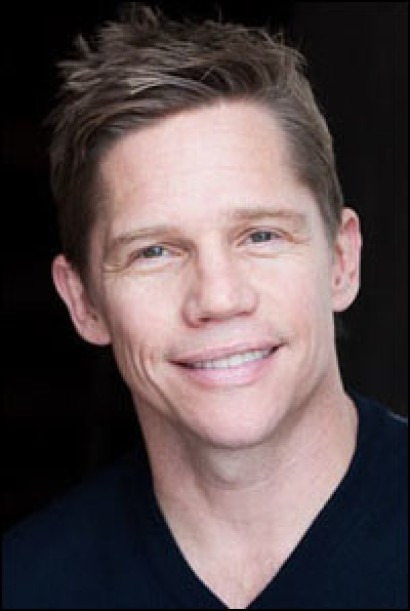
1969 – Jack Noseworthy Jr. is an American actor, whose most visible movie roles were in Event Horizon, U-571, Barb Wire and Killing Kennedy.
He was born in Lynn, Massachusetts, and graduated from Lynn English High School in 1982 and attended Boston Conservatory, where he earned a BFA.
He appeared in Bon Jovi's music video "Always", with Carla Gugino and Keri Russell. He co-starred with Meryl Streep in the Public Theater's 2006 production of Mother Courage and Her Children.
He starred in a short-lived MTV drama series, Dead at 21. In December 2005, he originated the role of Armand in the musical Lestat during its pre-Broadway run at the Curran Theatre in San Francisco, but left the production during its first week of previews. He is also the only male actor to play Peter Pan on Broadway, in the revue Jerome Robbins' Broadway.
Noseworthy made his debut as a nightclub performer in September 2006 at the Metropolitan Room in New York City in "You Don't Know Jack!".
In 2013, Noseworthy played Attorney General Robert F. Kennedy in Killing Kennedy, a made-for-television movie aired on National Geographic Channel.
In 2018, Noseworthy joined the Canadian production of Come from Away, in the role of Kevin T. and others.
Noseworthy has been in a relationship with Tony-winning choreographer Sergio Trujillo since 1990. They married in 2011. Noseworthy and Trujillo have a son born in 2018.

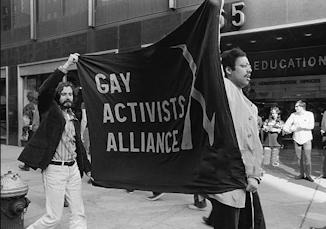
1969 – Gay Liberation Front members Jim Owles and Marty Robinson and about twelve people met in Arthur Bell’s Manhattan apartment and founded The Gay Activists Alliance (GAA). Author Arthur Evans wrote the group’s statement of purpose and much of its constitution. Acting on the principle that the personal is the political, GAA held homophobes who were in positions of authority personally accountable for the consequences of their public policies.
Accordingly, Robinson, Evans, and Owles developed the tactic of “zaps.” These were militant (but non-violent) face-to-face confrontations with outspoken homophobes in government, business, and the media. Evans was often arrested in such actions, participating in disruptions of local business offices, political headquarters, local TV shows, and the Metropolitan Opera.
In effect, GAA created a new model of gay activism, highly theatrical while also eminently practical and focused. It forced the media and the political establishment to take Gay concerns seriously as a struggle for justice. Previously the media treated Gay life as a peripheral freak show. The new Gay activism inspired Gay people to act unapologetically from a position of Gay Pride. This new model inspired other Gay groups across the county, eventually triggering revolutionary improvements in Gay life that continue to this day.
In November 1970, Robinson and Evans, along with Dick Leitsch of the Mattachine Society, appeared on the Dick Cavett Show. They were among the first openly Gay activists to be prominently featured as guests on a national TV program.

1988 – The Oregon Court of Appeals reverses two public indecency convictions of men looking for sex in restrooms, finding a right to sexual privacy even outside of enclosed stalls.

2007 – Nepal Supreme Court orders the end of anti-LGBTQ laws and creates new laws that safeguard LGBTQ people.

2009 – Mexico City legalises same-sex marriage and adoption by same-sex couples (effective March 2010)


14 notes
·
View notes
Text
The problems with JVP, Part 1
By Elizabeth Wolf on Facebook
Since I’m already pissing people off, I guess it’s a good time to post about Jewish Voice for Peace. I’ll put links in the comments.
Part 1
Like a very different organization, Moms for Liberty, the name is deceptive. You do not have to be a mom to start a chapter of Moms for Liberty, and you don’t have to be Jewish to start a chapter of Jewish Voice for Peace. Moms for Liberty is about a very specific interpretation of liberty that many would disagree with, and Jewish Voice for Peace promotes a very specific type of peace that you could easily mistake for its opposite.
This is why you see JVFP having Hanukkah events that are not actually during Hanukkah, lighting the candles incorrectly, fundraising on Shabbat (when many Jews do not handle money), and saying things that are theologically inaccurate about Judaism. People who know very little about Judaism can start a chapter, join a chapter, or run social media for a chapter, and then say they speak for Jews. This is how you end up with a Lebanese gentile being admin for their Facebook page. This is how you end up with an openly antisemitic Muslim making social media posts under their account, starting with the phrase, “As a Jew.” This is how you end up with temple denial and misrepresentations of the Torah floating around, apparently given the stamp of approval by a group of Jews.
“But JVFP has a rabbinic oversight board,” you might say. “Surely they are making sure the individual chapters are not out of line.” Well, I have no idea what that board is doing, but it’s not providing oversight to individual chapters. For example, it is easy to find people from JVFP saying that Israel is a white European colonial project, and for this reason, the Mizrahi community and Ethiopian Jews have explicitly spoken against them. The JVFP web site, however, clearly acknowledges that over half of the Israeli population is not white. JVFP social media accounts tolerate the verbal abuse of Jews and even targets members of mainstream Judaism with harassment, so that you’ll have a Black Jew being called a bloodthirsty white colonizer by non-Jews, ostensibly in the name of both Judaism and peace. I’ve seen Black Jews call this out and tag rabbis from the oversight board on this kind of activity and get no reply.
I’ll add to this that almost all the rabbis on this board are Reconstructionist rabbis, with a couple of Reform rabbis. If that doesn’t mean anything to you, I guess a good comparison would be a group claiming to speak for Christians but only having Seventh Day Adventists on its board, plus a couple of Congregationalists. I am absolutely not criticizing these denominations (I belong to one!) but rather saying that it’s disingenuous to claim you represent Jews in general when you’ve excluded most major branches of Judaism and only barely included another, preferring to have numerous student rabbis from one denomination instead of somebody with ordination from any of the others. This is especially so since a prized value in Judaism is the ability to hold space for multiple opinions or perspectives on a topic (“two Jews, three opinions”) and using these disagreements as learning opportunities.
There is definitely not oversight happening around things pretty much all Jews do agree on, though. For example, JVFP chapters stating that there never was a temple in Jerusalem, or that Passover is only about metaphorical liberation, or that tisha b’av should stop being observed. You can look up where the student rabbis are currently enrolled and see the official positions of these institutions and observe for yourself that what JVFP is saying does not line up. What is the oversight board actually doing? I’m not sure.
The official Recon position is that there was a temple and its destruction is still noted.
https://www.reconstructingjudaism.org/jewish.../tisha-bav/
JVFP officially acknowledging the demographic makeup of Israel.
https://www.jewishvoiceforpeace.org/.../JVP-Jews-of-the...
A statement from JIMENA:
A whoops:
#jewish voice for peace#jumblr#not representative#jvfp#problematic#jewish#important#anti zionist organizations#jvp
10 notes
·
View notes
Text
Brandeis University said Monday it will no longer recognize Students for Justice in Palestine (SJP) on its campus.
The Brandeis SJP announced through its Instagram account that its "Vigil for Palestine" event planned for Monday was canceled after the group was "unjustly de-charted."
"With heavy hearts, we would like to announce that our chapter of Students for Justice in Palestine has been unjustly de-charted. This comes as a part of Brandeis University, an institution that values social justice, trying to silence us from speaking our truth. We thank everyone who stood by us during this beautiful journey, and we encourage you to reach out to us if you need any kind of support. From the river to the sea, Palestine will be free. Until liberation, Students for Justice in Palestine," the post read.
According to the Jewish Insider, Brandeis SJP was sent a letter that said, in a "decision [that] was not made lightly," the group would be derecognized and no longer receive funding or be permitted to conduct campus events or use the Brandeis name.
"The National SJP has called on its chapters to engage in conduct that supports Hamas in its call for the violent elimination of Israel and the Jewish people. These tactics are not protected by the University’s Principles. As a result, the University made the decision that the Brandeis chapter of the National SJP must be unrecognized and will no longer be eligible to receive funding, be permitted to conduct activities on campus, or use the Brandeis name and logo in promoting itself or its activities, including through social media channels," the letter reportedly read.
"Students who choose to engage in conduct in support of Hamas, or engage in conduct that harasses or threatens violence, whether individually or through organized activity, will be considered to be in violation of the University’s student code of conduct," the letter continued, according to the Jewish Telegraphic Agency.
In a statement to Fox News Digital, Brandeis spokeswoman Julie Jette confirmed, "National SJP has called on its chapters to engage in conduct that supports Hamas in its call for the elimination of the only Jewish state in the world and its people. Such expression is not protected by Brandeis' principles of free speech. Students are welcome to express their support for Palestinians in a manner that complies with our rights and responsibilities. The removal of recognition had nothing to do with a vigil."
Jette further pointed to Brandeis University President Ronald Liebowitz's Monday op-ed in the Boston Globe, entitled "How universities should confront antisemitism on campus," to explain "his position on speech used to threaten or harass."
In his piece, Liebowitz remarked that student organizations "should lose all privileges" if they took part in protests calling for violence or the "annihilation" of the Jewish State and detailed how his university would handle it.
"Most urgently, in this twilight zone moment when students and faculty seem to be enjoying their freedom to express grotesque language about Jews, Jewish life, and the Jewish state, Brandeis will uphold free speech rightly understood. Universities cannot stop hate speech, but they can stop paying for it. Brandeis will ensure that groups that receive privileges through their affiliations with the university, including using its name, will lose their affiliations and privileges when they spew hate," Liebowitz wrote.
He added, "Contrary to the prevalence of the BDS movement on college campuses, Brandeis will pursue closer ties with Israeli academic and cultural institutions and will encourage more universities to follow suit."
According to its website, Brandeis University was founded in 1948 by the American Jewish community as a nonsectarian research institution and was named after the first Jewish Justice of the U.S. Supreme Court Louis Brandeis.
Brandeis Hillel executive director Rabbi Seth Winberg had previously addressed the Jewish student group about Monday's "Vigil for Palestine," offering support and discouraging engagement with SJP.
In a statement to Fox News Digital, Winberg praised the school's decision, saying, "Brandeis University’s decision today shows unequivocally that supporting terrorism and creating a hostile campus environment has consequences, and acknowledges the reality that Jewish students are confronting more antisemitism on campuses. Campuses should be safe places for all students alike - Jewish and Muslim, Israeli, and Palestinian - to live, learn, and thrive."
Meanwhile, SJP condemned the decision, telling Fox News Digital that "the actions of Brandeis University do not represent the Brandeis community who are calling for free speech and immediate ceasefire."
In October, Gov. Ron DeSantis, R-Fla., informed Fox News that he ordered state universities in Florida to disband organizations such as Students for Justice in Palestine for their open support for the Hamas terrorist organization. He appeared to cite federal law – 18 USC 2339b – that deems "providing material support or resources to foreign terrorist organizations" illegal.
6 notes
·
View notes
Text
Waiting for the Record Office to re-open I delved into the anti-Tavistock Institute conspiracy theorists. They have common themes (no surprise there)
Evil: Jews, the English, homosexuals, social scientists, NASA, womens liberation, short skirts, popular music, psychology, television, equality legislation, socialism (in fact any politcs left of Thatcher/Reagan), lesbians, democratic voting systems, 15 minute cities, abortion, working women, mixed marriages, ecological movements ( which are all labelled fake), non 'Western' religions, women in general oh and did I mention Jewish homosexuals.
Good: Military/industrial complex especially in pre-WW1 Germany, 'traditional' family structures and 'values', conservative white Christian men
Tactics include: quoting inaccurately and out of context e.g. every quote I checked in their books was incorrect in some way probably because their word salads are so hard to follow no one could be bothered to do any fact checking And, of course fact checking at all is beyond them. They quote each other with painful regularity always with the assumption that what they are quoting is correct even if two minutes with the original work would prove them wrong. Linking things which aren't remotely connected. Outright lying.
Oh well, back to tithe maps and manorial court records.
9 notes
·
View notes
Text
I think it's time we all accepted that J.K. Rowling is not some two-bit indie content creator who said a few bad things on Twitter. She's a bigot who became very rich and very famous because she wrote some wizard books that, despite their red flags, became really popular. Now she uses her wealth and her influence to advance her bigoted ideology.
Those of us who grew up in the Harry Potter fandom made this monster when we kept letting things slide when we were reading the books.
"Slavery is both legal and normalized in the wizarding world? I'm sure it's fine. Harry has a favorite slave that he helped free, so that's fine."
"Hogwarts has a whole house dedicated to blood purity that churns out angry racists? I mean, that's the bad guy house. I'm sure it's fine that the institution nonetheless condones and continues to enable their belief system."
"Oh, the goblins are super racist? It's probably an accident. Rowling retconned Dumbledore into being gay so she must be a progressive icon."
But it wasn't an accident. Fiction is a tattle-tale. The media you create informs on your values, and the values presented in the wizarding world of Harry Potter aren't fantastic. It is at best a horrifying dystopian state more concerned with the politics of civility than with equity, and it goes unchallenged throughout the series.
The closest it ever gets to being challenged is when Hermione tries to liberate House Elves. And that's unambiguously depicted as one crackpot teen liberal being naive and overenthusiastic; Not only is Hermione foolish to believe she could affect change, but her change isn't even desired because of "Happiness in Slavery".
The House Elves are happy with their lot in life, and well-meaning white girl liberals should just let them be and stop trying to uplift them. These are the politics of Harry Potter.
Rowling wasn't radicalized by getting validation from some right-wing YouTuber, as I sometimes see people try to frame her as. She's the same person who wrote those books. We just liked the books so much that, without even thinking about it, we forgave her for the troublesome things she wrote. And now we've made her rich and powerful enough to turn those troublesome things into social and political influence on the real world.
J.K. Rowling and her army of followers who care more about a video game than about trans and Jewish people are the consequence of shutting up and just letting people enjoy things.
#anti-jkr#harry potter#trans rights#trans rights are human rights#jewish rights are also human rights#read a different book
17 notes
·
View notes
Text
The Supreme Court handed down a brief and highly unusual order Wednesday evening that set the stage for more legal wrangling over the line between religious freedom and anti-discrimination laws.
The order itself is very narrow, giving lawyers for an orthodox Jewish university specific instructions on which motions they must file to ask New York’s appeals courts to reconsider a decision against the university.
A state trial court ordered the university to recognize an LGBTQ student group, something the school refused to do on religious grounds. The school sought relief on the Supreme Court’s “shadow docket,” a process for obtaining expedited relief from the justices without invoking the Court’s ordinary processes. And the university actually had a strong case that the state court was at least partly in the wrong, under longstanding Supreme Court precedents.
While the Supreme Court’s decision in Yeshiva University v. YU Pride Alliance is technically a loss for the university, because it leaves the trial court’s order in place, the decision reads like an implicit threat to New York’s appeals courts. It is very likely that, if New York’s appeals courts do not step in to permit Yeshiva University to deny recognition to the pride group, the Supreme Court will do so in the near future.
Meanwhile, the four most conservative members of the Court dissented. They also joined an opinion by Justice Samuel Alito which, if it became law, would seriously damage many civil rights litigants’ ability to bring an anti-discrimination lawsuit against someone who claims that their discrimination is motivated by their religious faith. And Alito’s approach could quite easily pick up the fifth vote it needs to become a majority opinion if the Yeshiva University case does return to the justices.
The Supreme Court’s order reads like a road map for the university to eventually win
The case arises out of a dispute between Yeshiva, an Orthodox Jewish university in New York City, and a campus Pride Alliance group that wishes to be recognized as an official student organization by the university. The university refuses to do so, claiming that it “would violate its sincere religious beliefs about how to form its undergraduate students in Torah values.”
After the student group sued, a state trial court ordered the university to recognize the group, and two New York appeals courts denied the university’s efforts to swiftly block that order. That seemingly left the Supreme Court as the university’s last possible source of relief.
But the five justices in the majority — the three liberals plus Chief Justice John Roberts and Justice Brett Kavanaugh — denied the university’s request to block the trial court’s decision, noting that the university technically could have filed additional motions in New York’s appeals courts. “Applicants may ask the New York courts to expedite consideration of the merits of their appeal,” the Court wrote. They also “may file with the Appellate Division a corrected motion for permission to appeal that court’s denial of a stay to the New York Court of Appeals.”
That’s an unexpected development. The Supreme Court typically does not provide lawyers with such detailed instructions on how they can navigate a state’s appellate process. It’s a sign that this Court, with its recent extraordinary deference to religious conservatives, expects the university should prevail in state courts.
Moreover, Yeshiva actually made a fairly strong argument that the trial court’s order violates longstanding doctrines giving religious institutions “power to decide for themselves, free from state interference, matters of church government as well as those of faith and doctrine.”
Should New York’s appeals courts continue to deny Yeshiva the relief it seeks, the Supreme Court sent a fairly loud signal in its Wednesday order that it will not stay its hand a second time. If Yeshiva’s lawyers “seek and receive neither expedited review nor interim relief from the New York courts,” the Court’s order states in its final line, “they may return to this Court.”
The justices, in other words, appear to be delivering a thinly veiled threat to New York’s appeals courts: Grant Yeshiva the relief it seeks, or else the Supreme Court will.
The Court is beginning to feel the pain from its own “shadow docket”
It’s worth noting that this case arrived at the Supreme Court on its “shadow docket,” a mix of emergency orders and other expedited matters that the justices decide without full briefing or oral argument.
Historically, when the Court decided a case, it ordinarily did so after the case was fully considered by lower courts, and after the justices received full briefing, heard oral argument, and often spent months drafting an opinion. This lengthy process was intended to prevent the justices from making a careless error in their ultimate decision. Because the Supreme Court has the final word on questions of federal law, it makes sense for it to spend a considerable amount of time with each case because there is no easy way to reconsider a Supreme Court decision.
Beginning in the Trump administration, however, the Court started ignoring its normal practices to rule swiftly in Trump’s favor when a lower court blocked one of his policies — prompting Justice Sonia Sotomayor to warn that her Court was “putting a thumb on the scale in favor of” the Trump administration.
The data bears Sotomayor’s accusation out. During previous administrations, asking the Court to take up a case on its shadow docket was considered such an extraordinary act that even the federal government was reluctant to do it. According to a 2019 paper by University of Texas law professor Stephen Vladeck, “during the sixteen years of the George W. Bush and Obama Administrations, the Solicitor General filed a total of eight such applications — averaging one every other [Supreme Court] Term.”
But Trump’s Justice Department ignored this longstanding norm, filing “at least twenty-one applications for stays in the Supreme Court” over the course of less than three years, including 10 in just the year-long Supreme Court term that began in October of 2018. And the Court’s Republican-appointed majority rewarded Trump for this behavior, handing his administration a full or partial victory in about two-thirds of cases, according to Vladeck.
One consequence of the Court’s eagerness to decide cases quickly and without full deliberation is that conservative private litigants have also started bringing cases on the Court’s shadow docket with increasing frequency. And that creates a ton of unnecessary work for the justices. The old norms, which discouraged lawyers from seeking shadow docket relief, didn’t just help ensure that the justices fully considered a case before making a decision, they also protected the justices from a cascade of motions seeking their immediate attention.
The Court’s order in the Yeshiva University case is consistent with its old practice of encouraging lawyers to seek every possible avenue of relief from lower courts before bringing a matter to the justices’ attention. But because the order seems designed to pressure lower courts into granting Yeshiva the relief that it seeks, it is unlikely to deter future litigants from bringing shadow docket cases in the future.
Alito wants to make a deep cut at anti-discrimination law
In a dissenting opinion joined by Justices Clarence Thomas, Neil Gorsuch, and Amy Coney Barrett, Alito claims that his Court should have granted immediate relief to Yeshiva. That’s unsurprising, as Alito frequently takes maximalist stances in favor of religious conservatives.
And, indeed, Alito’s opinion takes a distinctly maximalist approach to this case, calling for a legal rule that would make it very difficult to enforce anti-discrimination laws against anyone who claims that their religion requires them to discriminate.
In Employment Division v. Smith (1990), the Supreme Court held that religious objectors typically must follow the same laws as everyone else. A state may not single out people of faith for inferior treatment that is not imposed on secular individuals or institutions, but religious objectors must follow all “neutral law[s] of general applicability.”
But Alito claims that New York’s anti-discrimination law is not neutral or generally applicable because it does not apply to “benevolent orders” — indeed, it does not apply to “any club which proves that it is in its nature distinctly private.”
These kinds of carveouts from civil rights laws for private clubs are exceedingly common. The federal law banning businesses that offer their services to the public from engaging in many forms of discrimination, for example, exempts “a private club or other establishment not in fact open to the public.” It is likely that the First Amendment, which grants rights of free association to membership organizations that do not apply to public businesses, forbids states from enacting anti-discrimination laws that require genuinely private clubs to accept members they do not want to accept.
Alito, in other words, is saying that, if a state enacts an anti-discrimination law that exempts private clubs which the Constitution most likely requires it to exempt, then it must also exempt religious objectors from that law. In practice, that means Alito would give all religious objectors fairly sweeping exemptions from huge swaths of anti-discrimination law.
In fairness, Alito did suggest in Burwell v. Hobby Lobby (2014) that bans on race discrimination, at least in the workplace, may still be applied to religious objectors. But the position he lays out in his Yeshiva University dissent would likely give religious conservatives a broad right to engage in discrimination against women, LGBTQ Americans, and other groups that are often protected by civil rights laws.
And, if New York’s appellate courts do not rule in Yeshiva’s favor, Alito will get the chance to pick up the fifth vote he needs to turn his approach into the law, once this case returns to the Supreme Court.
20 notes
·
View notes
Text
By: Jewish Institute for Liberal Values
Published: Apr 1, 2024
A Guide to Left-wing Antisemitism 🧵
Left-wing antisemitism entails prejudice, discrimination, or hostility against Jews, based on leftist ideologies. It's especially insidious, as it often masquerades as part of a broader "Social Justice" movement.

How does antisemitism on the left compare to the far-right?
Political horseshoe theory illustrates similarities between far-left and far-right antisemitism. Despite ideological differences, both extremes view Jews as a singular malevolent group with excessive power.
Far-right antisemitism is often overt and easily identifiable, while left-wing antisemitism is typically more subtle, making it more prevalent and socially acceptable among progressives.
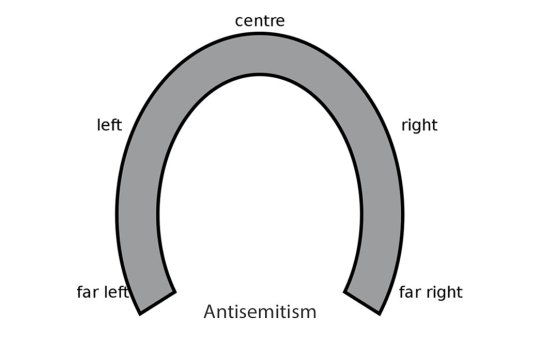
What does left-wing antisemitism look like?
Labeling Jews as 'Oppressors': Jews are framed as “privileged” and “oppressors” within an “intersectional” academic framework, disregarding their diverse experiences and history of persecution.
Anti-Zionism: While criticizing Israeli policies is not inherently antisemitic, denying Jewish self-determination or deeming Israel illegitimate can be.
Collective Guilt: Holding all Jews accountable for Israel's actions constitutes a form of antisemitism.
Selective Outrage: Disproportionate criticism of Israel while overlooking similar or worse actions by other countries reflects a bias against Jews.
Holocaust Revisionism: Denying or downplaying the Holocaust, often disguised as questioning historical narratives or criticizing Israel, is a form of antisemitism sometimes found on the left.
Where does left-wing antisemitism come from?
While there have been various influences, one significant contributor stems from an academic framework that emerged around the 1970s: Postcolonial Theory.
This theoretical framework was pioneered by Palestinian-American scholar Edward Said, who framed Zionism as a “colonial project.”
Postcolonial Theory, like other Critical Theories, operates as a form of activist scholarship. While presenting itself as legitimate and rigorous, it prioritizes its political goals over the genuine production of knowledge.
Postcolonial Theory doesn't aim for historical accuracy. Instead, it seeks to "reenvision history" from the "perspective of the oppressed."
Within Postcolonial Theory, Israel is portrayed as a colonial, imperialist, oppressive power, while Palestinians are depicted as helpless victims without agency—even those that commit the October 7 atrocities.
This portrayal has significantly influenced perceptions, particularly in activist circles, turning the cause of "Free Palestine" into a trendy "Social Justice" issue.
How did left-wing antisemitism spread?
Middle-eastern Funding of Universities: Undisclosed billions from the Middle East to U.S. universities have influenced academic discourse, framing the Israel-Palestine conflict as a struggle for “indigenous rights” against “colonialism.”
Social Media Activism: Social media has helped propel what was once an obscure academic field mostly confined to college campuses into an international post-colonialist movement.
DEI: Through corporate diversity programs, post-colonial concepts have become a dominant ideology in mainstream institutions, including many Jewish organizations.
Underestimating the problem: Many Jewish organizations dedicated to combating Jew hatred chose to focus on far-right antisemitism, allowing left-wing antisemitism to proliferate.
Why the focus on left-wing antisemitism?
Many Jewish organizations already exist to tackle antisemitism associated with the far-right. While there is concern about threats on both sides of the aisle, the Jewish Institute for Liberal Values (JILV) focuses on the left.
JILV was formed in 2021 to address a specific ideology emerging on the left that has become embedded into our institutions and propagates antisemitic ideas and tropes.
Visit to learn more.
3 notes
·
View notes
Text
I have had to make peace with the fact that Red, White and Royal Blue is fundamentally American Brand Hopium and therefore white liberal shit (I think that's like a prerequisite for being one of my hyperfixations. They all live in the space between trashy glamour and an irritated moral consicence, never giving me a moment's peace). But one thing Casey Mcquiston did right (apart from letting the Jewish girl and MoC dunk on T-Swift*) was making Henry walk away from the Crown in the coda. The amount of fanfiction that centers on making him and Alex have a Westminster wedding and being granted dukedoms is fucking me up. Like, it's not just one or two, it's nearly every single fic written well enough to be readable.
In the USAmerican liberal mind, having a brown man of colonized origins ascend to Royal White Gay status is somehow progressive, rather than making him also complicit in an institution that is the literal symbol of white supremacy, colonial genocide, pillaged wealth and systemic inequality. Mcquiston, for all their faults, at least recognised that the wealth of empire is a blood-soaked thing, and to partake of it makes you complicit in its sins. Literally that's one of the first things that sets Henry apart from his family, and gets Alex's attention. The fandom otoh, hasn't gotten the memo. Or maybe not having to live the reality of colonial violence and trauma gives them the privilege of escaping the moral implications of British royalty. I know that the US's Overton window is fucked beyond all hope, but what passes for the leftist solidarity among white queers is a tragedy. No wonder every Black person or PoC over there is fucked up in some way.
As you can see with Meghan Markle, bringing BIPOC into violently oppressive, white supremacist institutions isn't a win for their communities, it's feeding them alive into maw of the beast for liberal tokenism. The virulent racism is a fucking foundational feature, not a bug. I'm not faulting her for marrying the man she loved, and they don't deserve any of the horrible shit the RF has been putting them through, but in a purely political context, her joining the RF was a betrayal of her fellow colonized. And the fact that they refuse to relinquish their titles, even after everything, tells us that they're still not in solidarity with everyone else this parasitic, anti-democratic relic institution has fucked over. But apparently that's peak fantasy for USAmerican and white queers.
This is why I don't fuck with fandom outside of AO3 anymore. It's always the same. Whites and the West just don't have any actual leftist values, or if they do, they're purely cosmetic. It's nothing to do with your generational cohort bullshit, y'all are just as fucking racist and white privileged as your parents.
*substracting every single point for having Alex crush on Justin Trudeau immediately beforehand though. Trudeau's blackface scandal and allegations of misogynistic and racist harrassment way predated 2019, when the book would have been in edits. Also minus fucking points for making Alex idolise Obama, and Scalia's BFF Ruth Bader Ginsburg. I wonder whether white libs know that this white woman refused to retire during the Obama administration, making the current Handmaiden's Tale state of affairs directly her fault. Also the fact that Thurgood Marshall and also the heroes of the Chicano Civil Rights movement were right the fuck there. And stop fucking blaming your education system because the rest of us learned about US history on our own, because y'all's global cultural hegemony penalizes us for not knowing this shit.
#fandom racism#I'm putting this in the fandom tags and using the block button very liberally#anyone that wants to push aside my lived reality as a WoC from the Global South#to stan for their fictional gays and white authors is racist sorry#we have to put up with you all the time so y'all can stand to get your nose out of joint once in a while#casey mcquiston#white leftists#white liberals#anti british monarchy#FirstPrince#red white and royal blue#fandom#us history#global South#representation#representation politics#white supremacy#us politics#queer media#lgbtqia#genocide#colonization#knee of huss
4 notes
·
View notes
Text
By NAYA LEKHET
Other strategies to combat anti-Zionism include demonstrating that Jews are the indigenous people of the Land of Israel, thus opposing the claim that Zionism is a form of settler-colonialism. The logic here being, a group of people who are indigenous cannot be colonists. While this is true, that is, that Jews are very much the indigenous people of Israel, it reinforces the progressive framework that power equals guilt.
A third dominant strategy is to influence Diversity Equity and Inclusion (DEI) programs in universities, hoping that in the mandated anti-racism and anti-discrimination trainings, DEI officers would include the long-suffering Jews. But as Tammi Rossman-Benjamin, founder of AMCHA recently writes, “it turns out there are numerous problems involved in trying to address antisemitism within a DEI framework... as a practical matter, DEI programs limit their ‘equity’ and ‘inclusion’ efforts to certain identity groups, which rarely include Jews.”
Focusing predominately on marginalized groups, DEI programs are not equipped to deal with the fact that for American Jews, “this is no longer the case.” DEI frameworks necessitate a worldview in which only marginalized people matter. By extension, Zionists, who are Jews with power, not only do not matter but must be dealt with opprobrium. This is not an opinion. It is a fact. In December 2021, the Heritage Foundation published a troublesome finding in which DEI staff harbor antisemitic views toward Israel and Zionism.
What, then, is the solution? At the forefront of this battle is the Institute for Jewish Liberal Values, founded by David Bernstein, whose 2022 book Woke Antisemitism: How a Progressive Ideology Harms Jews documents how the sweeping ideology of progressivism has given fertile ground for contemporary Jew-hatred, anti-Zionism, to flourish. Identifying a correlation between progressive ideology and antisemitism, Bernstein’s important work sheds light on how and why Zionism is perceived to be racism as progressive ideologues espouse the notion that people with power can be racists.
Naturally, the solution would be to disprove that Jews are privileged, or rather prove that they are beleaguered. But we are not. In numbers alone, we are, indeed, a minority. But we are successful; moreover, Zionism is the realization of the Jewish people’s will to take its rightful place among the nations: to establish secure political borders under the aegis of self-determination.
As Ze’ev Jabotinsky, a Revisionist Zionist leader and military commander of the Irgun, said in 1937, “Tell them [the Jewish People] three things in my name, and not two: they must get iron [i.e. weapons]; they must choose a king; and they must learn to laugh.” We are to read this statement as an extension of self-determination. This is Zionism: the Jew with the weapon who is a sovereign. This, however, is also entirely unpalatable to progressivism.
9 notes
·
View notes
Text
Why Is it important for museums to tell inclusive stories that are relevant to the communities they serve?
Dana Golan Miller
September 18th, 2023
Last weekend, a friend from our Israeli community suggested that we visit the Jewish Capital Museum here in DC. Since it's a new museum and none of us had been there before, we decided to go. We were two families with children ranging from elementary to middle school age. Our decision to visit was driven by curiosity rather than our Jewish identity. We don't require any reminders of our Jewish heritage; we recently came from Israel. However, I had a genuine desire to explore this museum, similar to our visits to the Jewish museum in Berlin last year and the one in Warsaw two years ago.
Lately, especially since I began the MET program, I have been constantly contemplating the pivotal role of museums in today's world, especially when dealing with community and engagement. I wholeheartedly believe in the importance of museum institutions of all kinds. During the COVID-19 pandemic, when many people seemed to overlook museums, I held the belief that the pandemic could actually have the opposite effect. Was my intuition correct, especially when dealing with engagements?
Personally, I do sense that many museums are increasingly making efforts to engage with their communities. I firmly believe, especially after the pandemic, that museums should strive to consistently involve their communities and reflect the diversity of those communities in their leadership, staff, collections, and programs. When minority audiences can see themselves or their culture represented in exhibitions or as part of the museum's team, they can experience a true sense of belonging.
In year 2017, MASS Action Toolkit, Interpretation: Liberating the Narrative, emphasized the definition and the importance of Interpolation in museum practice. "Interpretation is a narrative and a method of communicating to and with visitors; it might be written, spoken or visual. The type, size and scope of an institution has a lot to do with what interpretation looks like… Interpretation also conveys an institutional voice… museum interpretation can and should move in the direction of being dialogic (conversational), de-centered (all people given equal consideration), and open source (sharing authority with audiences, particularly those directly affected by the legacies of our spaces)". (MASS Action Toolkit, 2017, 90)
While reading the Toolkit I was thinking about my personal experience with the Jewish capital museum. I'm an Israeli and part of the immigrant Israeli community. I'm actually not part of the American Jewish community in DMV.
The main web-page of the Jewish Capital Museum says those big sentences: "Connect personally and collectively, reflect on the relevance of the past to today, and Act on behalf of your values and communities". And at the page of the main exhibition "Connect, Reflect, Act" says "Welcome to the heart of the Capital Jewish Museum! Here you can read, listen, talk, and engage with interactive throughout this colorful, lively space. Dig deep into local Jewish history, discover Jewish perspectives on social justice issues facing the world today, and think about your own identity and values".
The 2017 Toolkit went deep inside the concept of Interpolation that "should be poly-vocal, multi-directional, and self-aware …The interpretation that a museum puts forward - through tours, exhibits, labels, and more - can make a space feel inclusive or exclusive for its visitors. Creating interpretation that feels not only accessible but safe to a multitude of populations demands a reconceptualization of the museum—from language, to hierarchies, to build environments" Later on it continues "Museums should move toward interpretive approaches that are grounded in complex and universal narratives but guided by heterogeneous collectivity (MAAS Action Toolkit, 2017, 91-92). Then, the Toolkit suggest ways of Strategic of transformation – such as expend research, learn critical race theory, create polytonality, listen and make space, assert a position, Mine the human. And at the end, added "Co-creation - Bringing members of stakeholder communities onto interpretive planning teams to develop exhibitions and installations fundamentally changes the role of museum as content creator into a space of shared meaning-making" (MAAS Action Toolkit, 2017, 99-100). The last page which is much important for my opinion, it also mentioned the important of the in gallery interpolation – among them design spaces, and the importance of labels and audio tours.
I truly believe that the staff at the Capital Jewish Museum put forth a sincere effort to consider most of the advice provided in the Toolkit. Personally, I have several criticisms regarding the museum's exhibition and how it represents Jewish culture. Perhaps it's because I have my own reservations about Jewish religious aspects, or maybe it's due to my Israeli background. However, on the whole, I believe they have done an exceptional job in portraying the story of Jewish Americans living in Washington, D.C.
The museum spaces were filled with numerous interactive activities that encouraged visitors to actively participate. I witnessed one individual standing in front of a historic picture, showing it to his son and saying, "That's your uncle when he was young." Many visitors, all English speaker participated at the interactive sections, read, explored, felt engaged from my point of view. Moreover, I found myself pondering whether I could relate to the storytelling and heritage. Could I establish a connection? And yes, for a few moments, I certainly could. I even thought about my 93-year-old grandmother, a Holocaust survivor, and what she might have said if she were here. But this I keep to another blog…
Towards the conclusion of the exhibition, there was a special wall, the kind that many museums install, where visitors can leave notes in response to the question: "What identifying word describes you?" Many people wrote "Jewish" at the top before any other identification, or, at the second. This is indeed substantial evidence that the Museum has succeeded in serving and engaging the community they cater to—the American Jewish community in the DMV area.
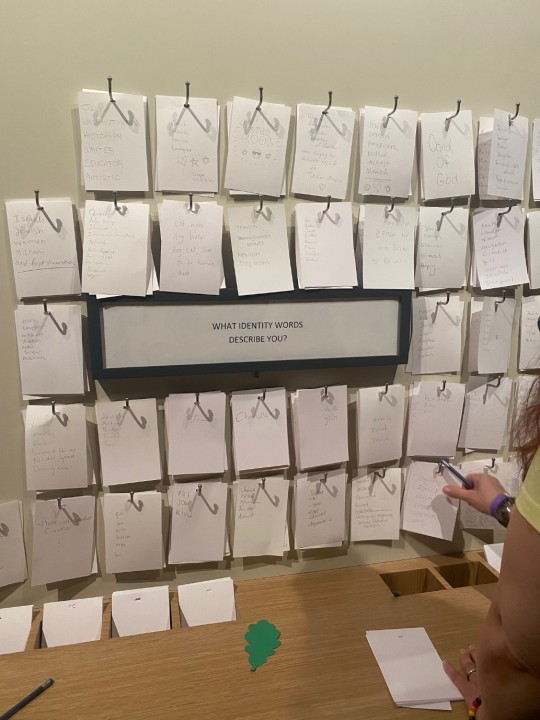
At the image: Exit wall of the exhibition Collect, reflect, act (ongoing exhibition), Capital Jewish Museum, Image taken by the author, September 9th, 2023.
Recourses:
Jewish Capital Website
Annie Anderson, Ashley Rogers, Emily Potter, Elon Cook, Karleen Gardner, Mike Murawski, Swarupa Anila, and Alyssa Machida, "Interpretation: Liberating the Narrative" chapter Five, in MASS Action Toolkit, 2017, p. 89-105.
1 note
·
View note
Photo
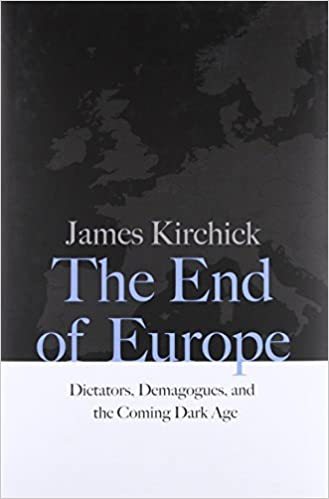
My favorite books in Feb-2023 - #20
The End of Europe: Dictators, Demagogues, and the Coming Dark Age Hardcover – March 7, 2017
by James Kirchick (Author)
Once the world’s bastion of liberal, democratic values, Europe is now having to confront demons it thought it had laid to rest. The old pathologies of anti-Semitism, populist nationalism, and territorial aggression are threatening to tear the European postwar consensus apart. In riveting dispatches from this unfolding tragedy, James Kirchick shows us the shallow disingenuousness of the leaders who pushed for “Brexit;” examines how a vast migrant wave is exacerbating tensions between Europeans and their Muslim minorities; explores the rising anti-Semitism that causes Jewish schools and synagogues in France and Germany to resemble armed bunkers; and describes how Russian imperial ambitions are destabilizing nations from Estonia to Ukraine. With President Trump now threatening to abandon America's traditional role as upholder of the liberal world order and guarantor of the continent's security, Europe may be alone in dealing with these unprecedented challenges.
Based on extensive firsthand reporting, this book is a provocative, disturbing look at a continent in unexpected crisis.
About the Author
James Kirchick is a visiting fellow at the Brookings Institution, a columnist for Tablet magazine, and a correspondent for the Daily Beast. His articles and essays appear frequently in the Los Angeles Times, the Washington Post, POLITICO, the London Spectator and the Frankfurter Allgemeine Zeitung.
1 note
·
View note
Text
I used to think for a long time that if a community of jews was not careful with halakha, it made their opinions worthless because only a kehila that was shomer mitzvot could have minhagim that had any worth/weight
while i don’t think this is entirely wrong, i now think it has some serious caveats and is a lot more nuanced than that
I still don’t really think it matters what assimilated jews think re: changing the halakha, however there’s a meta halakhic value of institutional legitimacy that i’ve previously put a lot of weight onto, and i think it’s less important than i previously thought
a core liberal value is valuing individuals (and I honestly believe this is also a jewish value, because the philosophical underpinning of the infinite worth of human beings is monotheism) and i lost that at some point along the way when i rejected leftism
it’s so clear that judaism is supposed to be there for every jew and we need rabbis and leaders and psak and support that can meet every jew where they are at and it doesn’t make a rabbi or an opinion lesser just because it’s suitable/appealing for people who aren’t in the frummest place. in fact in some ways it’s more valuable
1 note
·
View note